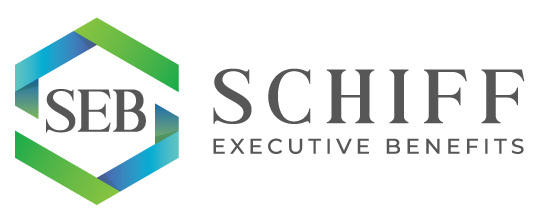Reducing or Suspending 401(k) Safe Harbor Contributions Mid-Year under Notice 2020-52 and some options you might explore on a NQDC basis for potential refunds from the plan.
July 30, 2020
A client recently called and asked the following questions: “Under what circumstances, if any, can the business that has a standard 401(k) safe harbor plan, reduce or eliminate the company’s mandatory safe harbor contribution during the plan year? Is there any relief granted because of the impact of Covid-19?”
The following outlines the circumstances under which sponsors of 401(k) [and 403(b)] safe harbor plans may reduce or eliminate employer safe harbor contributions mid-year under normal circumstances, and under the special circumstances outlined in IRS Notice 2020-52 granted as a result of the Covid-19 pandemic.
Under normal circumstances, and according to final Treasury Regulations, a sponsor of a 401(k) safe harbor plan may amend the plan during the current year to reduce or suspend the company’s safe harbor contribution—either the matching or nonelective contribution—under the following limited circumstances.
A removal or reduction of a safe harbor contribution mid-year is permitted if the employer either
- Is operating under an economic loss for the year (See Internal Revenue Code Section (IRC 412(c)(2)(A);[1]
or
- Included a statement in the safe harbor notice given to participants before the start of the plan year that the employer
- May reduce or suspend contributions mid-year;
- Will give participants a supplemental notice (described below) regarding the reduction or suspension; and
- Will not reduce or suspend employer contributions until at least 30 days after receipt of the supplemental notice.
COVID-19 Relief Any Plan Amended Between March 13, 2020, and August 31, 2020
Any sponsor of a safe harbor plan may amend its plan between March 13, 2020, and August 31, 2020, to reduce or suspend safe harbor contributions (either match or nonelective) without condition. However, special rules related to the supplemental notice apply as explained next.
Supplemental Notice
Typically, if a reduction or suspension of safe harbor contributions will occur, a 30-day advance notice rule applies. This supplemental notice must explain 1) the consequences of the suspension or reduction of contributions; 2) how participants may change their deferral elections as a result; and 3) when the amendment takes effect.
COVID-19 Relief for Supplement Notice for Nonelective Contributions
Sponsors who reduce or suspend 401(k) safe harbor nonelective contributions will satisfy the 30-day supplemental notice requirement, provided the sponsor
- Gives the notice to employees no later than August 31, 2020, and
- Adopts the required plan amendment no later than the effective date of the reduction or suspension of safe harbor nonelective contributions.
There is no relief on the timing of the supplemental notice under Notice 2020-52 for sponsors who reduce or suspend safe harbor matching contributions. Sponsors must give 30 days notice via a supplemental notice to participants before the reductions can take place.
Other Procedural Requirements
Typically, an employer that suspends or reduces safe harbor contributions must also
- Give participants a reasonable opportunity after they receive the supplemental notice and before the reduction or suspension of employer contributions to change their contribution elections;
- Amend the plan to apply the actual deferral percentage (ADP) and/or actual contribution percentage (ACP) Tests for the entire plan year; and
- Allocate to the plan any contributions that were promised before the amendment took effect.
Additional Notice 2020-52 Relief: Mid-Year Safe Harbor Contribution Reductions for Highly Compensated Employees
Pursuant to Notice 2020-52, a plan sponsor may choose to reduce or suspend 401(k) safe harbor contributions for highly compensated employees (HCEs) alone. In such cases, the plan sponsor must provide an
- Updated safe harbor notice and
- Opportunity for participants to update their elections, determined as of the date of issuance of the updated safe harbor notice.
Conclusion
In the past, the ability of sponsors to amend their 401(k) [or 403(b)] safe harbor plans to reduce or suspend employer matching or nonelective safe harbor contributions mid-year was limited. The IRS expanded those opportunities under IRS Notice 2020-52 in order to provide relief in light of the Covid-19 pandemic.
As part of this change however, you might wish to consider a 409A (discretionary) deferred compensation plan for participants who might be subject to any “refunds” from the plan not meeting the “Top Hat” percentages at the end of the year. If the participants are given the ability to amend their qualified plan contributions as part of the employer reduction, they can redirect those funds that the participants wanted for retirement back into their account and avoid current taxation.


